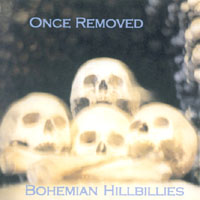| The Dagley Dagley Daily |
|
By Janet Dagley Dagley
ISSN 1544-9114 Add this blog to your My Yahoo! page:
Or click here to read our Atom feed: Support The Dagley Dagley Daily: Click to contribute Your choice 
Check out our Dagley Dagley Daily souvenir merchandise!  Visit our ONLINE STORE! The Dagley Dagley Daily Bohemian Hillbillies  Buy our CD Once Removed at CDBaby 
The Dagley Dagley Daily ARCHIVES 01/26/2003 - 02/02/2003 02/16/2003 - 02/23/2003 02/23/2003 - 03/02/2003 03/02/2003 - 03/09/2003 03/09/2003 - 03/16/2003 03/16/2003 - 03/23/2003 03/23/2003 - 03/30/2003 03/30/2003 - 04/06/2003 04/06/2003 - 04/13/2003 04/13/2003 - 04/20/2003 04/20/2003 - 04/27/2003 04/27/2003 - 05/04/2003 05/04/2003 - 05/11/2003 05/11/2003 - 05/18/2003 05/18/2003 - 05/25/2003 05/25/2003 - 06/01/2003 06/01/2003 - 06/08/2003 06/08/2003 - 06/15/2003 06/15/2003 - 06/22/2003 06/22/2003 - 06/29/2003 06/29/2003 - 07/06/2003 07/06/2003 - 07/13/2003 07/13/2003 - 07/20/2003 07/20/2003 - 07/27/2003 07/27/2003 - 08/03/2003 08/03/2003 - 08/10/2003 08/17/2003 - 08/24/2003 08/24/2003 - 08/31/2003 08/31/2003 - 09/07/2003 09/07/2003 - 09/14/2003 09/14/2003 - 09/21/2003 09/21/2003 - 09/28/2003 09/28/2003 - 10/05/2003 10/05/2003 - 10/12/2003 10/12/2003 - 10/19/2003 10/19/2003 - 10/26/2003 10/26/2003 - 11/02/2003 11/02/2003 - 11/09/2003 11/09/2003 - 11/16/2003 11/16/2003 - 11/23/2003 11/23/2003 - 11/30/2003 11/30/2003 - 12/07/2003 12/07/2003 - 12/14/2003 12/14/2003 - 12/21/2003 12/21/2003 - 12/28/2003 12/28/2003 - 01/04/2004 01/04/2004 - 01/11/2004 01/11/2004 - 01/18/2004 01/18/2004 - 01/25/2004 01/25/2004 - 02/01/2004 02/01/2004 - 02/08/2004 02/08/2004 - 02/15/2004 02/15/2004 - 02/22/2004 02/22/2004 - 02/29/2004 02/29/2004 - 03/07/2004 03/07/2004 - 03/14/2004 03/14/2004 - 03/21/2004 03/21/2004 - 03/28/2004 03/28/2004 - 04/04/2004 04/04/2004 - 04/11/2004 04/11/2004 - 04/18/2004 04/18/2004 - 04/25/2004 04/25/2004 - 05/02/2004 05/02/2004 - 05/09/2004 05/09/2004 - 05/16/2004 05/16/2004 - 05/23/2004 05/23/2004 - 05/30/2004 05/30/2004 - 06/06/2004 06/06/2004 - 06/13/2004 06/13/2004 - 06/20/2004 06/20/2004 - 06/27/2004 07/04/2004 - 07/11/2004 07/11/2004 - 07/18/2004 07/18/2004 - 07/25/2004 07/25/2004 - 08/01/2004 08/01/2004 - 08/08/2004 08/08/2004 - 08/15/2004 08/15/2004 - 08/22/2004 08/22/2004 - 08/29/2004 08/29/2004 - 09/05/2004 09/05/2004 - 09/12/2004 09/12/2004 - 09/19/2004 09/19/2004 - 09/26/2004 09/26/2004 - 10/03/2004 10/03/2004 - 10/10/2004 10/10/2004 - 10/17/2004 10/17/2004 - 10/24/2004 10/24/2004 - 10/31/2004 10/31/2004 - 11/07/2004 11/07/2004 - 11/14/2004 11/14/2004 - 11/21/2004 11/21/2004 - 11/28/2004 11/28/2004 - 12/05/2004 12/05/2004 - 12/12/2004 12/12/2004 - 12/19/2004 12/19/2004 - 12/26/2004 12/26/2004 - 01/02/2005 01/02/2005 - 01/09/2005 01/09/2005 - 01/16/2005 01/16/2005 - 01/23/2005 01/23/2005 - 01/30/2005 01/30/2005 - 02/06/2005 02/06/2005 - 02/13/2005 02/13/2005 - 02/20/2005 02/20/2005 - 02/27/2005 03/20/2005 - 03/27/2005 07/02/2006 - 07/09/2006  This work is licensed under a Creative Commons License. Who Links Here My blogroll: My Technorati Profile |
|
|||
|